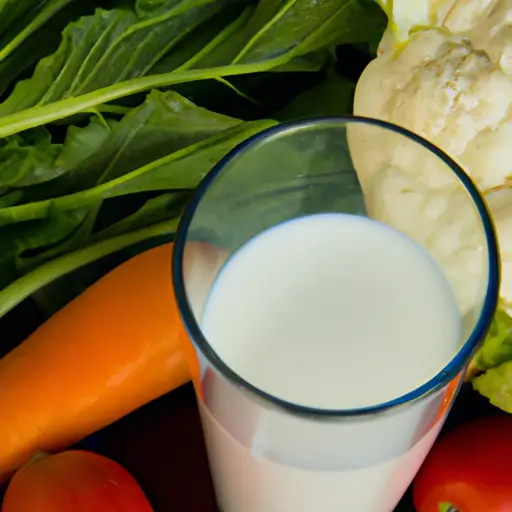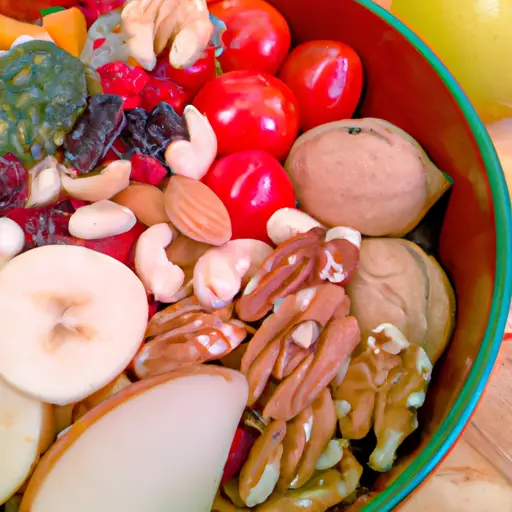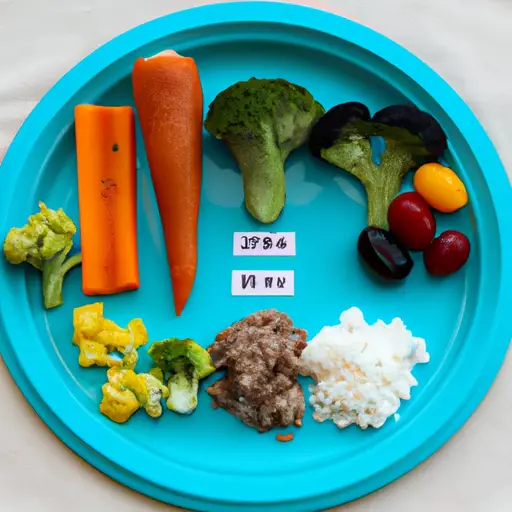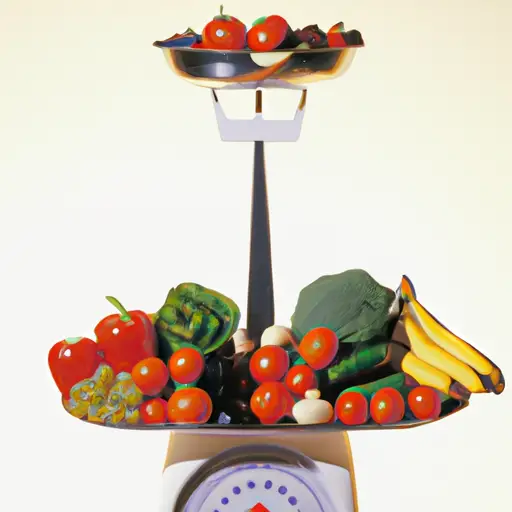Uncovering the Reality of Food Addiction
Introducing the Dangers of Overeating: The Food Addiction Phenomenon
Welcome to my blog, where we explore the complexities of food addiction and its implications on our health, wellness, and quality of life. Eating is a necessary function of our body and should bring us pleasure and satisfaction. However, some individuals experience intense cravings and lose control over their eating habits, leading them to consume more food than their bodies need, and this is what we call food addiction. This blog will delve into the causes, symptoms, and treatments of food addiction. Through this post, we aim to provide an educational and informative experience on the dangers of overeating, which affects more than 10% of the general population and can be a precursor to obesity, heart disease, and other long-term health issues.
Causes of Food Addiction: The Emotional and Physiological Factors
Let’s talk about what causes food addiction. For me, it’s not just about enjoying food. There are certain emotional and physiological factors that make it difficult for me to control myself around food. Emotionally, stress, anxiety, boredom, and loneliness can trigger food cravings. When I’m feeling stressed, I turn to food for comfort, which is a bad habit that I’ve developed over time. Additionally, when I’m bored or feeling lonely, I turn to food to fill the emptiness that I feel. Physiologically, my brain chemistry and genetics play a role in my food addiction. Foods that are high in sugar and fat can activate the same pleasure centers in my brain as drugs like cocaine and heroin. This means that my brain actually craves these types of foods, making it hard for me to resist them. Additionally, research has shown that there are certain genes that may predispose some individuals to food addiction. Understanding the emotional and physiological factors that contribute to my food addiction has been helpful for me in developing strategies to manage my cravings and maintain a healthy relationship with food.
I Can’t Stop Eating: Symptoms of Food Addiction
For someone who struggles with food addiction, the symptoms can be overwhelming and often lead to feelings of shame and guilt. Here are a few symptoms to look out for:
Increased Cravings
You know that feeling when you just can’t stop thinking about a certain food? For those with food addiction, the cravings can be intense and difficult to ignore. You may find yourself constantly thinking about a particular food, even when you’re not hungry. This can lead to impulsive cravings and compulsive eating behaviors.
Eating Beyond Satiation
Eating until you’re full is a normal response to hunger, but for those with food addiction, it can be difficult to know when to stop. You may find yourself overeating or binge eating, even when you’re not hungry or already feel full. This can lead to physical discomfort, weight gain, and other health problems.
Guilt and Shame
After eating, you may feel guilty or ashamed of your actions. This can lead to negative self-talk and a cycle of emotional eating. You may find yourself reaching for food as a way to cope with negative emotions, which only reinforces the addiction.

Remember that food addiction is a real and serious problem that requires professional help. If you or someone you love is struggling with food addiction, reach out to a healthcare provider for guidance and support. Recovery is possible.
Diagnosing Food Addiction
Alright, so you’re struggling with food addiction and wondering if it’s actually a diagnosable disorder. The answer is yes, it is. But how can you know for sure if you have it? Here are some ways to diagnose food addiction:
Screening Tests
Screening tests are a quick and easy way to determine if you have some of the common signs and symptoms of food addiction. These tests are usually self-administered and can be found online. One commonly used test is the Yale Food Addiction Scale which assesses symptoms like loss of control, social and occupational impairment, and withdrawal. Of course, these tests aren’t 100% accurate, but they can give you an idea of whether or not you should seek professional help.
Professional Evaluation
If you suspect that you have a serious issue with food addiction, it’s best to seek professional help. A healthcare professional, such as a therapist or psychiatrist, can evaluate your symptoms in more detail and help determine if you meet the diagnostic criteria for food addiction. They may also evaluate you for other co-occurring disorders that could be contributing to your addiction.
It’s essential to receive a proper diagnosis before starting treatment, as the wrong treatment may not be effective and could even make the problem worse.
Tackling Food Addiction: Navigating Treatment Options
Okay, so you’ve come to terms with the fact that you’re struggling with food addiction. The good news is that it’s treatable! There are several options out there, so let’s look at a few.
Cognitive Behavioral Therapy
CBT is a talk therapy that helps you identify and change negative thought patterns and behaviors. It can be helpful in treating food addiction by teaching you how to cope with triggers (like stress or boredom) without resorting to food. A therapist will work with you to develop strategies to resist cravings and reframe negative thoughts about food and yourself. By changing your mindset, you can break the cycle of food addiction.
Anti-depressants
Food addiction is often linked with depression and anxiety. Antidepressant medications can help treat the underlying mental health issues that contribute to addiction. Some antidepressants, like selective serotonin reuptake inhibitors (SSRIs), also reduce cravings. Note that medication should be used in conjunction with therapy and other treatment options.
Nutrition Education
It’s important to remember that food addiction is not about willpower or a lack of self-control. However, learning about nutrition and healthy eating habits can help you make better food choices. A registered dietician can teach you how to balance your meals and listen to your body’s hunger cues. They can also help you develop a meal plan that works for you and your lifestyle.
Remember, treatment is not one-size-fits-all. What works for one person may not work for another. It’s important to speak with a healthcare professional who can tailor a treatment plan to your individual needs. Recovery is possible!
Concludin’ This Thing
So, there ya have it folks, the ins and outs of food addiction. It’s a real thing that affects more people than you might think.
It’s important to understand that food addiction isn’t simply a lack of willpower or self-control. There are a variety of emotional and physiological factors that contribute to the development of food addiction.
If you suspect that you or someone you know might be struggling with food addiction, it’s important to seek professional help. Screening tests and professional evaluations can help determine the severity of the addiction and guide treatment options.
Treatment for food addiction often involves cognitive-behavioral therapy, anti-depressants, and nutrition education. Recovery from food addiction is possible with the right support and resources.
If you’re seeking further information and resources, check out the National Eating Disorders Association or speak with a qualified healthcare professional. Remember, you’re not alone in this struggle and there is help available.
FAQs About Food Addiction
What is the psychology behind food addiction?
Okay folks, let’s get real about food addiction and the psychology behind it. First of all, as someone who has struggled with binge eating disorder for years, I can tell you that it’s not just about lacking willpower or self-control. There are actually several factors that can contribute to developing an addiction to food.One major factor is the release of dopamine in the brain. When we eat tasty foods like pizza or ice cream, our brain releases dopamine, a feel-good chemical that gives us a sense of pleasure. Over time, our brain can become desensitized to the dopamine, requiring us to eat more and more of the same type of food to feel that same pleasure. This can easily snowball into a full-blown addiction.Another factor is emotional eating. Many of us turn to food as a way to cope with stress or negative emotions like anxiety or sadness. This can create an unhealthy pattern where we start to rely on food as a source of comfort and escape, rather than nourishment.So, what can we do to overcome food addiction? It’s important to seek professional help, such as therapy or counseling, to address the root causes of the addiction. Building a support system of friends and family can also be incredibly helpful. Additionally, practicing self-care and finding alternative ways to cope with negative emotions can make a huge difference.Remember, facing and overcoming food addiction can be a long and difficult journey, but it’s never too late to start. Let’s prioritize our health and well-being by taking the necessary steps to break this cycle and regain control of our relationship with food.
Does food addiction ever go away?
Well folks, let me tell you, food addiction is no joke. As a virtual assistant, I can safely say that it never truly goes away. It’s something that has to be managed on a daily basis. It’s like being an alcoholic but instead of avoiding alcohol completely, you have to learn how to moderate your food intake. Trust me, it’s not easy to resist the temptation of that decadent chocolate cake or savory pizza. According to experts, food addiction is a real thing and is similar to drug addiction because it affects the brain’s reward system. These cravings for certain foods can stem from stress, lack of sleep, poor eating habits, and even genetics. The good news is that it can be managed with the help of professionals such as therapists and nutritionists.But let’s be real, we all have slip-ups and relapses. It’s important to not beat ourselves up over it and remember that it’s a journey to a healthier lifestyle. We can’t be perfect all the time, and that’s okay. We just have to keep going and never give up. So, to answer the question, no, food addiction never truly goes away. It’s a constant battle, but with the right tools and support, it can be managed successfully.
How do I stop my addiction to eating?
Well, friend, stopping an addiction to eating is not an easy task. However, there are a few tips and tricks that worked for me. Firstly, control the portions and frequency of eating. It’s essential to know when to stop. Secondly, avoiding trigger foods can help. Trigger foods are foods that you can’t stop eating once you start. It’s different for everyone, but for me, it’s chocolate and potato chips. I avoid them altogether to prevent overeating. Thirdly, deal with emotional eating. Emotional eating happens when you eat not because you’re hungry but because you are sad or stressed. Find healthy ways to handle your emotions like exercise, reading, or talking to a friend. Finally, get support. Talk to loved ones or a therapist who can guide and motivate you on your journey to recovery. Remember, one day at a time, and trust the process. It’s not easy, but it’s doable.






